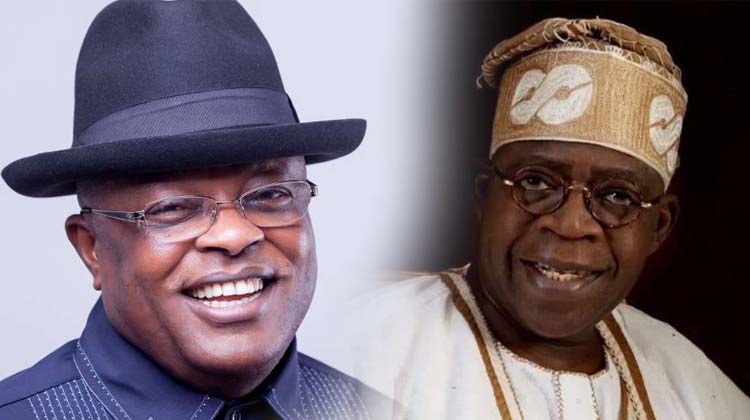Minister Umahi Refutes Claims of Southern Bias in Road Projects, Highlighting Northern Emphasis
Minister of Works, David Umahi, has directly addressed and refuted allegations circulating on social media that the Federal Government is prioritizing road development in the Southern region of Nigeria over the North. These claims, attributed to a group identifying themselves as Northern Elders, have been dismissed by the Minister as both misleading and inaccurate. Umahi emphasized the government’s commitment to equitable development across all regions, highlighting specific project allocations and expenditures to demonstrate a more substantial focus on Northern road infrastructure.
During an inspection tour of ongoing federal road projects in Rivers and Bayelsa states, Umahi provided detailed data to counter the circulating narrative. He pointed to the government’s four legacy projects: Lagos-Calabar (750km), Sokoto-Badagry (1,068km), Calabar-Abuja (465km), and Akwa-Nga – Jos – Bauchi – Gombe (439km). Based on the distribution of these projects across geopolitical zones, Umahi stated that the North accounts for 52% of the total project length, while the South accounts for 48%. This distribution, he argued, contradicts the claims of Southern favoritism.
Furthermore, the Minister detailed the financial allocations to each project, asserting that the Northern projects receive a larger share of the funding. He cited the Sokoto-Badagry project, specifically the 258km section in Kebbi state, which received approximately ₦2 trillion for the construction of both carriageways. He compared this to the Lagos-Calabar project, where a 170km stretch received combined funding of approximately ₦3.3 trillion. This comparison, he argued, clearly indicates a greater financial commitment to the Northern sections of the legacy projects.
Umahi proceeded to analyze individual project costs to further reinforce his position. He mentioned the Sokoto-Zamfara-Katsina-Kaduna road project, a 750km undertaking inherited with zero percent completion, which has received ₦825 billion in funding. He compared this to the Second Niger Bridge, with a combined cost of ₦308 billion for sections 2A and 2B, and the Lagos-Ibadan expressway, which required only ₦33 billion to complete existing works. These figures, according to the Minister, underscore the disparity in funding allocation between Northern and Southern road projects, contrary to the narrative being disseminated.
The Minister strongly criticized the spread of such misinformation, stressing that President Buhari is committed to fair and balanced development across the entire country. He underscored that all Nigerians benefit from the country’s road network regardless of their region. Umahi further noted that genuine Northern elders and various financial institutions, including the IMF and World Bank, have commended the President for his infrastructure development efforts. These endorsements, he argued, provide further validation of the government’s equitable approach to development.
Umahi expressed confidence that the ongoing legacy projects, slated for completion within the next six years, will significantly transform Nigeria’s infrastructure landscape. He emphasized the strategic importance of these projects in connecting major roads within the six geopolitical economic corridors, fostering greater connectivity and facilitating economic growth throughout the country. In his concluding remarks during the inspection tour, Umahi expressed satisfaction with the quality and progress of work on several projects, including the Bodo-Bonny road, the Eleme section of the East-West road, and the Ahoada-Mbiama section. He commended the contractors involved for their speed and adherence to quality standards.


